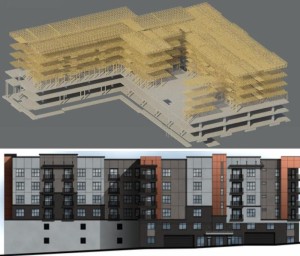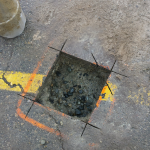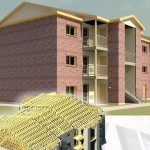 What is the difference between civil engineering and structural engineering? Simply put, all structural engineers can technically perform civil engineering duties, but not all civil engineers can complete structural engineering tasks.
What is the difference between civil engineering and structural engineering? Simply put, all structural engineers can technically perform civil engineering duties, but not all civil engineers can complete structural engineering tasks.
Essentially, the professions are discerned by specialized complexities that permit a more focused area of expertise in regard to structural engineering requirements, procedures and protocols. Let’s take a look at the two separately to differentiate between them.
Civil Engineering
Products of interest: designing software, bridges, roads, buildings, pipelines (comprehensive picture of finalized project).
In the beginning…. was civil engineering…
Seriously – the civil engineering profession dates back to as far as when people first began constructing shelter for themselves. Now, we obviously see a more structured progression into this sector of engineering by way of university degree program offerings.
McNeil Engineering’s Civil Engineers have expertise spanning across sectors from small residential projects to multifaceted commercial centers. We offer a comprehensive and customizable approach to civil engineering projects to help mitigate regulatory issues and streamline the process for our clients. Our current design services include the following:
- Land Development Services
- Site Feasibility Studies and Due Diligent Analysis
- Site Layout
- Road Design
- Grading Design and Earthwork Analysis
- Drainage Analysis and Storm Drain System Design
- Storm Water Detention System Analysis and Design
- Erosion Control Measures and SWPPP (Stormwater Pollution Prevention Plan)
- Water System Analysis and Design
- Sanitary Sewer System Design
- Subdivision Design
- 3D Models
- UDOT Access and Encroachment Permits
- Permitting and Entitlement Assistance with Cities, Counties, and State Agencies
The conceptual procedures outlining the work of a civil engineer can be drilled down into subsectors involving transportation segments, geographical components and environmental divisions. This discipline of engineering predominantly involves design, construction and continued maintenance on both the physically architected and environmentally produced structures and public settings.
Structural Engineering
Products of interest: Columns, beams, support systems, connectors (specific and individualized factors within the foundational set up of a comprehensive project).
Structural engineering is a sub-discipline to civil engineering and a more specialized profession within the industry dealing primarily with the ‘bones’ of the individualized structures – think Eiffel Tower.
Structural engineers think more in terms of empirical data and laws of physics during theoretical application of a project while utilizing innovative technology for in depth analysis, initial design and conceptual drawings for procedural project implementation.
McNeil Engineering’s Structural Engineers collaboratively operate with a knowledgeable team of skillful professionals all with a comprehensive level of understanding and utmost professionalism that supersedes that of generalized service providers.
Our structural engineering services include the following:
- Constructability Analysis
- Seismic Analysis
- Force Protection Blast Analysis and Design
- Alternative Designs for Construction Cost and Time Savings
- Structural Analysis, Design, Specifications and Construction Documentation
- Field Observation and Construction Management
- Reinforced, Precast Tilt Up and Prestressed Concrete
- Precast Concrete Production, Transport and Erection
- Post Tension Concrete Design
- Steel, Masonry and Timber Design
- Construction Products and Materials Development
- Structural Investigation and Reports
- Structural Damage and Failure Analysis
- Repair, Re-strengthening and Retrofitting of Structures
- Crane Design and Analysis
- HUD (Housing of Urban Development) Permanent Foundation Analysis
- Fire and Disaster Investigation and Analysis
The structural engineering work flow is critical to the continued evolution and progressive adaptation of the project on an end-to-end basis. Ensuring that you partner with a team of skilled structural engineers could be the difference between project implementation through to optimized completion or stifled progress all the way around.
You can’t have one without the other
If you are reading this to try and figure out which one you need to hire for your next project, then the answer is simple: You will need both.
Both engineering disciplines have very specific and detailed duties of compliance to work through and around. To ensure all regulations and governing entities are satisfied with the construction and integration phase of the project, a civil engineer and structural engineer must work together.
Think of it like this: A structural engineer occupies the tip of the work flow triangle, handling all of the specific nuances of mechanical strength and longevity, whereas the civil engineer works on the wider components within the triangle, thus taking on the designing and planning phases. Both are important, but both bring very different skill sets and requirements to the project table.
If you have any questions about an upcoming project, or would like more information regarding the project implementation process, please feel free to reach out to us HERE today. We look forward to working with you.








